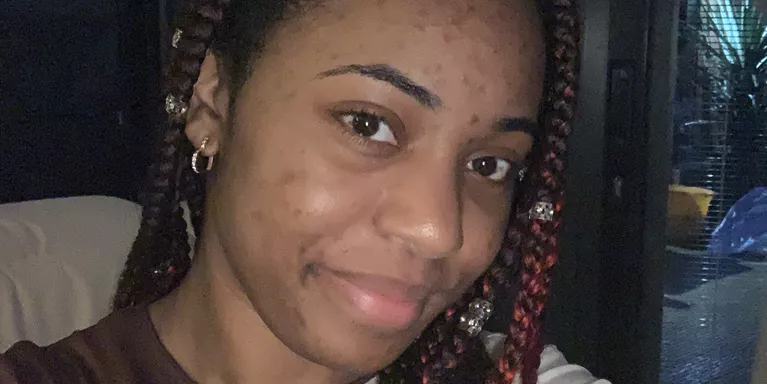Looking after your mental health online
Explains the benefits and challenges to your mental health of being online. Also has information on staying safe online, getting the balance right between your online and offline life, and finding reliable mental health information online.
About your mental health online
On this page:
How could being online help my mental health?
Being online can be a great way to support your mental health. There are lots of ways it can help, including:
Connecting with other people
Online communities and social media networks can give you peer support. These sites can be a space to talk about how you're feeling and share support. Some of us find it easier to communicate online rather than in person or over the phone. Being online can also help us talk more honestly about how we're feeling. And it can help us connect with others, especially if we're going through a difficult time.
Expressing yourself
There are many ways to express yourself creatively online. These include creating and sharing photos, stories and videos. You might find communicating online a useful way to test how you're feeling before sharing with friends and family. This can help you clarify how you feel or what you want before you talk to those closest to you.
Finding health information
You can search the internet for information about mental health problems, their symptoms and treatment options. Researching what you're going through can feel empowering. For example, you could use the internet to research the benefits and possible side effects of medications. Our page on finding reliable health information online has more information and some tips to help. There are also a range of digital tools, such as health apps, which can support your mental health.
Reading about other people's experiences
You can often find people online who have had similar experiences to you. Reading other people's accounts of mental health can help you to feel empowered. It can validate your own experiences and make you feel less alone. Others may share tips that have worked for them. These could be useful to you when managing your mental health and wellbeing, though everyone is different.
Giving you time and space to relax
For some of us, online activities can be great for our wellbeing. For example, online gaming can help with forming social connections. And it can act as a form of mindfulness.
Challenging myths and raising awareness
Sharing your experiences online is a way to challenge myths around mental health and raise awareness. It can also help motivate other people to seek out support for their own mental health. If you're interested in blogging for Mind, you can find more information on our Telling your story webpage.

I needed to turn my challenges into a positive to help others
I wanted to share my experiences to help and inspire others. It’s so important to talk about mental health because you never know who is struggling and needs some positive energy to get through the next day.
Can being online make my mental health worse?
While being online can help our mental health, there might be times when it could have a negative impact. For example when you find yourself:
Comparing yourself to others
Spending time on online communities and social media sites can mean that you end up comparing yourself to others. This can negatively impact your self-esteem and how you view your life. On social media sites, we very often only see what other people want to share about their lives. This can make us think we're the only ones feeling the way that we do. It's important to remind yourself that you don't know how other people feel when they're alone. Or when their social media feeds are turned off.
Feeling anxious, stressed or depressed
You might feel pressure to constantly check your social media accounts and respond to messages and notifications. This can cause feelings of anxiety and stress. Regularly reading news and information sites during negative world events, such as the coronavirus pandemic, can also lead to poor wellbeing. This is sometimes called 'doomscrolling'. Our page on coping with distressing events in the news has some tips that may help with this.
Having difficulty sleeping
For some of us, spending lots of time at night checking social media and other online sites disrupts our sleeping patterns.
Feeling lonely
Some people find using online communities and social media a lonely experience. It doesn't give them the same feeling of connection as offline support. We might also feel lonely when we see photos or videos online of other people socialising at events or with friends and family.
Seeing triggering content
We have access to a lot of information at all times online. Sometimes it can be difficult to protect ourselves from certain types of content that can be triggering to us, or dangerous. This includes content that encourages or promotes self-harm and suicide. Or content that might remind us of something we've gone through that it is painful to relive.
Feeling overwhelmed
Being a friend to other people online or connecting with others going through a similar situation to you can feel positive. But caring for someone who's going through a difficult time can also be very stressful and overwhelming. It could affect your own wellbeing.
Our pages on safety & privacy, online relationships and online/offline balance have information that might help with some of these issues.
Internet overuse and addiction
If the amount of time you spend online is beginning to affect your day-to-day life, you may be showing some signs of internet overuse or addiction. This is when you use the internet to the point of it causing you harm. This could include addiction to things like gaming and gambling, or to the internet in general.
Internet gaming disorder
For many of us, online gaming can be a healthy and enjoyable hobby. But some of us may find it addictive. And this can have a big impact on our day-to-day lives.
This is known as internet gaming disorder. Its symptoms can include:
- Frequent and excessive thoughts about internet games
- Difficulty stopping internet gaming
- Losing interest in other hobbies and activities because of internet games
- Compulsively needing to spend more time on internet games
- Secretive behaviour, for example hiding the amount of time you spend on internet games from your friends and family
- Turning to games when feeling depressed, anxious or helpless
- Difficulty maintaining relationships and work because of gaming
Gambling disorder
Some people gamble for fun and enjoyment. But the internet makes gambling activities like sport betting and casino games easier to access from home. Some people may identify with symptoms of gambling disorder, which include:
- Needing to gamble with more and more money
- Feeling restless or irritable when trying to stop gambling
- Frequent and excessive thoughts about gambling
- Returning often to gambling, even after losing a lot of money
- Secretive behaviour to try and stop other people from finding out how much you're gambling
- Turning to gambling when feeling depressed, anxious, or helpless
- Difficulty maintaining relationships and work because of gambling
- Struggling with money because of gambling
If you feel like you might have an internet addiction, speak to your GP. Our pages about seeking help for a mental health problem has some useful tips.
This information was published in July 2023. We will revise it in 2026.
References and bibliography available on request.
If you want to reproduce this content, see our permissions and licensing page.













